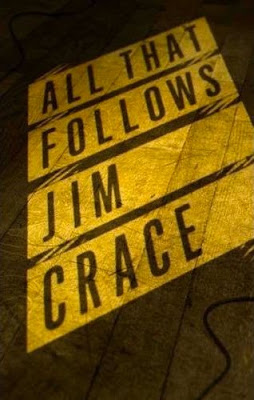If Harold Kushner had been a literary critic instead of a rabbi, he might have asked, “Why do bad books happen to good writers?” And if Leo Tolstoy had also been a critic, he might have answered, “All good books are alike, while every bad book goes bad in its own way.”
These bloody thoughts are occasioned by Henning Mankel and Jim Crace, novelists of proven quality who have recently produced very bad books, indeed. Of course, Tolstoy’s resonant but simplistic bifurcation is no more true of books than it is of families. So let us begin by considering what the new novels by Crace and Mankel have in common.
Each author attempts something new. Mankel, Sweden’s most famous living crime novelist, tries to cram a Micheneresque indictment of colonialism, with much globetrotting and historical backstory, into the narrow confines of a police procedural. Crace, an award-winning Britsh litterateur, assays a thriller with faint sci-fi overtones.
Mankel’s strengths include an engaging narrative voice, and he uses it to great effect in the early sections of The Man From Beijing, where we’re shown a wolf gnawing on the murdered body of an elderly man (from the wolf’s point of view!). Soon it’s revealed the victim is only one of 19 people butchered in a remote Swedish hamlet, all pensioners except for a 12-year-old boy.
It’s a splendid set-up, baroque and lurid, and Mankell keeps it grounded by his keen eye for dour Swedish character and social detail, and his way with pungent and credible characters. Indeed, in Vivi Sundberg, a stout, no-nonsense provincial detective in her mid-’50s, he has created a fascinating protagonist – who, alas, he promptly abandons.
Instead of burrowing ever deeper into this remote corner of Scandanavia, with Sundberg as our guide, Mankell supplants her with the much less interesting Birgitta Roslin, an urban judge on medical leave who takes an intrusive interest in the case even though it lies far out of her jurisdiction and despite being warned off by local and national authorities.
Worse, Mankell opens the narrative up like a Russian nesting doll. Soon he’s in 19th- century China, with the story of three peasant brothers. Then it’s the American West, where a sadistic Swedish project manager abuses the Chinese laborers helping build the intercontinental railway – then back to China, with a band of Swedish missionaries. And there are fequent forays to modern Beijing, not to mention Africa, where the Chinese seek to secure energy and mineral reserves.
As long as Mankell remains in Sweden, his story has the ring of deep authenticity. But while his narrative verve never deserts him, he has little feel for the American West, and his presentation of Chinese characters is hackneyed to the point of racial stereotype. One villain wields a sword, like a medieval warrior, while another seeks to assassinate an enemy with ground glass hidden in food – something I haven’t seen since I read Sax Rohmer’s Fu Manchu novels at the age of 12.
Moreover, Mankell’s plot hinges again and again on unlikely coincidence, with the climax decided by the abrupt intervention of characters hardly hinted at before that moment. Key characters take drastic action with little coherent motivation, as when a villain murders his most loyal and effective henchman for no apparent reason. I could go on. Almost everything that happens outside Sweden is caricature.

A Man Booker finalist and three-time Whitbread Award-winner, Jim Crace certainly knows how to write a muscular and compelling sentence, as well as how to move a narrative forward in admirably subtle ways. But none of that saves All That Follows.
Indeed, prose quality aside, not one thing about this low-wattage thriller is authentic. Set in 2020, its hero is Leonard Lessing, a successful jazz sax player nearing his 50th birthday. Full of self-regard, but maddeningly irresolute and timid, he’s unhappily married to a demanding woman who’s fretting about the disappearance of her estranged daughter.
On a newscast, Lessing recognizes the leader of a terrorist band who has taken hostages somewhere in suburban Britain. It’s Maxie Lermontov, an American anarchist he knew as a young man, a former romantic rival. For no good reason, Lessing visits the scene of the hostage crisis, standing behind police barricades, befriending the teenage daughter of Lermontov and his old love interest and generally behaving like a dull fictional character in an irrational search for psychological motivation.
Lessing is the single most irritating aspect of All That Follows, but by no means the only one. His approach to the teenaged girl is supposed to be ill-considered and wreckless, but it’s actually creepy, with Lessing no less despicable for not acting on his dirty-old-man impulses. When the action goes back in time, to 2007 and Austin, Texas, the narrative enters a bogus fugue. Crace is as awkward and unconvincing in Bush’s America as Mankell is in modern Beijing.
Crace’s decision to cast All That Follows as a near-future thriller is profoundly misguided. Really, I’m heartily sick of serious novelists playing with genre tropes as though they can be picked up and put down at will. On the contrary, sci-fi, fantasy and crime fiction require total commitment, just as serious literature does.
Not for one instant does Crace make us believe that by 2020 we’ll have solved the energy crisis, while his 2007 radical political operatives are actually cut-and-pasted from the Vietnam War era. All That Follows would be far more convincing if it were set in the present day, with Lessing’s youthful Texas sojourn taking place around 1967.
But even then, the novel would still have this limp dishrag of a main character. His arbitrary heroics in the final act would remain ludicrous, and the happy ending, with none of his stupid and selfish actions reaping the consequences they deserve, would still be risible.
The Man From Beijing, by Henning Mankell. Translated from the Swedish by Laurie Thompson. Knopf. $29.95. 366 pp.
All That Follows, by Jim Crace. Nan A. Talese/Doubleday. $25.95. 223 pp.
